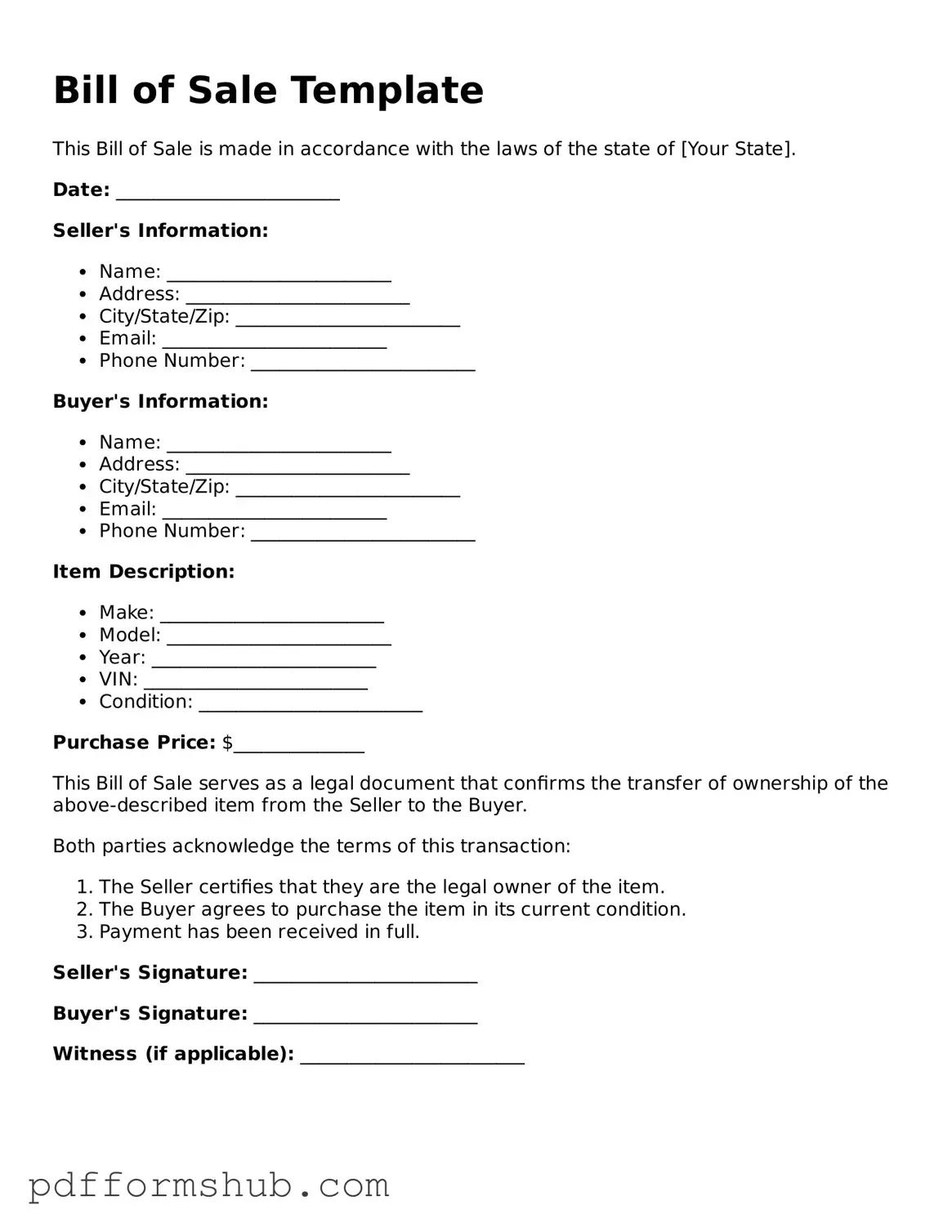Valid Bill of Sale Form
A Bill of Sale is a legal document that records the transfer of ownership of personal property from one party to another. This form serves as proof of the transaction and includes essential details about the item being sold, as well as the buyer and seller's information. To ensure a smooth transfer process, consider filling out the Bill of Sale form by clicking the button below.
Customize Form

Valid Bill of Sale Form
Customize Form

Customize Form
or
Free PDF Form
Short deadline? Complete this form now
Complete Bill of Sale online without printing hassles.